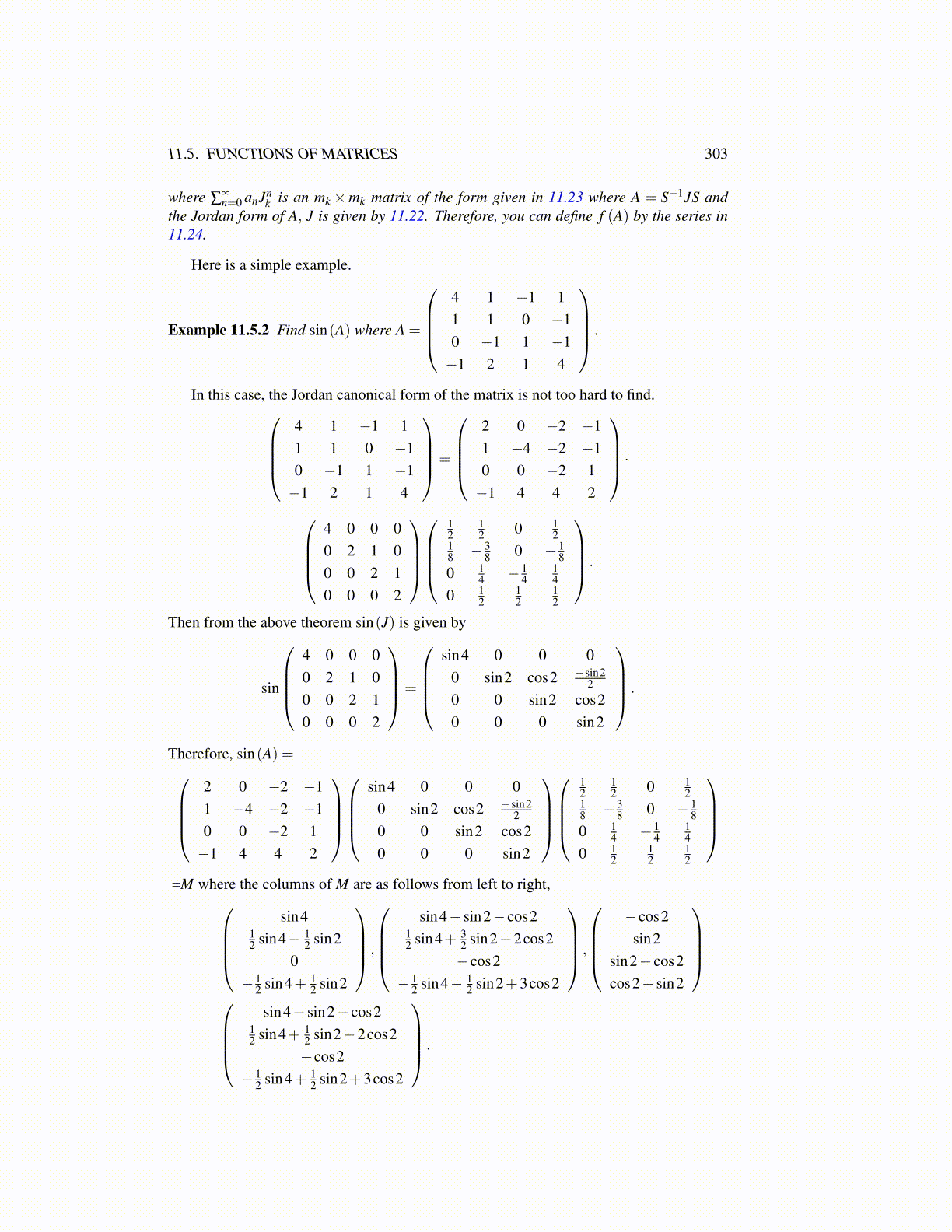
11.5. FUNCTIONS OF MATRICES 303
where ∑∞n=0 anJn
k is an mk×mk matrix of the form given in 11.23 where A = S−1JS andthe Jordan form of A, J is given by 11.22. Therefore, you can define f (A) by the series in11.24.
Here is a simple example.
Example 11.5.2 Find sin(A) where A =
4 1 −1 11 1 0 −10 −1 1 −1−1 2 1 4
.
In this case, the Jordan canonical form of the matrix is not too hard to find.4 1 −1 11 1 0 −10 −1 1 −1−1 2 1 4
=
2 0 −2 −11 −4 −2 −10 0 −2 1−1 4 4 2
·
4 0 0 00 2 1 00 0 2 10 0 0 2
12
12 0 1
218 − 3
8 0 − 18
0 14 − 1
414
0 12
12
12
.
Then from the above theorem sin(J) is given by
sin
4 0 0 00 2 1 00 0 2 10 0 0 2
=
sin4 0 0 0
0 sin2 cos2 −sin22
0 0 sin2 cos20 0 0 sin2
.
Therefore, sin(A) =2 0 −2 −11 −4 −2 −10 0 −2 1−1 4 4 2
sin4 0 0 00 sin2 cos2 −sin2
20 0 sin2 cos20 0 0 sin2
12
12 0 1
218 − 3
8 0 − 18
0 14 − 1
414
0 12
12
12
=M where the columns of M are as follows from left to right,
sin412 sin4− 1
2 sin20
− 12 sin4+ 1
2 sin2
,
sin4− sin2− cos2
12 sin4+ 3
2 sin2−2cos2−cos2
− 12 sin4− 1
2 sin2+3cos2
,
−cos2
sin2sin2− cos2cos2− sin2
sin4− sin2− cos212 sin4+ 1
2 sin2−2cos2−cos2
− 12 sin4+ 1
2 sin2+3cos2
.